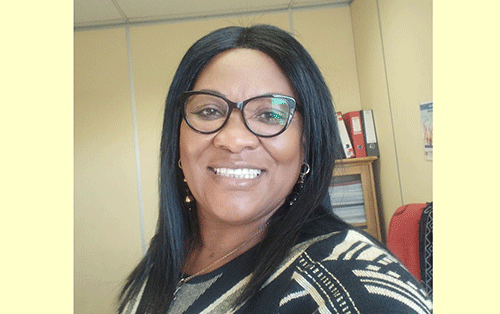They rush into burning buildings while others run out.
They face smoke, flames and collapsing walls.
I call them unsung heroes because once the smoke clears and the sirens fade, these heroes are too often left with outdated equipment, inadequate pay and minimal support from the system.
Real stories and sacrifice from a firefighter
Mr X (pseudonym) remembers the night he was called to the informal settlement on the outskirts of Windhoek.
It was around 23h00 when we received a call.
As usual, we drove as fast as we could, trying to squeeze our fire engines between the congested shacks so we could save lives and properties.
There are no roads, neither street names to direct us better.
There are no streetlights – it was dark.
The bystanders were reluctant to give right of way so we could pass freely.
Instead of moving far, they were coming closer to our vehicles.
This made it harder for the team to reach the scene.
Upon arrival, we found the informal dweller engulfed in flames.
The first thing to do was to get first-hand information from the sibling of the victim who escaped the fire.
Parents were still chilling – none of them were home.
The eight-year-old boy informed us that his younger brother was in the house.
The flame was up.
We could not enter the burning shack straight away.
Within few seconds, the roof collapsed.
Remember, as first responders, we are required to take a critical and wise decision before the next move.
That is what we did.
We then entered the shack for dipping down.
We discovered a body of a five-year-old boy that was burnt beyond recognition – hell on earth!
The emotions increased, harsh words were thrown to us, who were equally hurt just like anybody else.
Criticisms were unbearable.
What did not make headlines was the smoke inhalation we bared and the number of months we spent battling anxiety every time the alarm rang.
We live with scars from this service – some visible and others not.
We face losses, traumas and the unrelenting stress of knowing that every shift could be the last one.
However, we keep going, as we take everyday as a blessing.
The hidden cost of the job
The physical toll of firefighting is huge.
Years of exposure to heat, toxic chemicals and extreme physical exertion leave many firefighters with long-term health issues.
Most of the firefighters suffer from mental burden due to the untreated ‘I am okay mentality’.
This is a common stress diseases affecting about 65% of the firefighters in Namibia and elsewhere.
Others work long hours with limited benefits and little job security.
The very people who protect our lives, properties and the environment are often left unprotected by the systems meant to support them.
A system that falls short
Despite the critical role, fire brigades across the country are underfunded and overloaded.
This is from the outdated equipment, limited training facilities at national and local level, shortages of staff and lack of political will.
Shigwedha (2021), in a study titled ‘An Assessment on the preparedness of the City of Windhoek in handling disasters and emergencies’ stated that over 80% of the local authorities’ fire brigades do not have enough fire fighting equipment.
Therefore, fire brigades are forced to use equipment that is more than 10 years old.
This falls well outside the recommended safety standards.
Additionally, over 50% of the country’s fire stations lack access to basic fire fighting skills due to budget constrains.
Many fire departments rely heavily on internal volunteers, who receive no compensation or benefits for their endless efforts.
A 2024 report by the Namibian’s Local Authorities Forum of Fire Chiefs found thatmore than 70% of fire brigades in local authorities operate with below-recommended staffing levels.
This increases risks to both firefighters and the people they serve.
Mental health support is often not available.
Some firefighters fear speaking up about emotional struggles they encounter due to stigma or job security concerns.
What lawmakers should do
This is a bravery request for our lawmakers to make a meaningful change by increasing funding for fire brigades country wide.
This means investing in modern, safe fire fighting equipment and training.
Finally, the issue of recognising firefighting by providing fair wages, psychosocial supports and other necessary benefits requires robust legislative support.
To our legislators, do not wait for the next tragedy to recognise the price these men and women pay to save our lives.
These are not favours – they are responsibilities.
*Frederika Amutse-Shigwedha is a public safety advocate, who focuses on emergency services and public policy.



